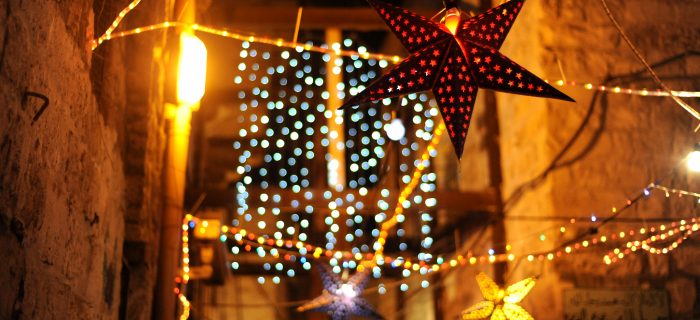Ramadan Reflections: The Zakat Obligation & Food Justice
At sunset, we pass around dates and milky chai to break our fast. With this physical relief, we do our first prayer and enjoy iftar, the sunset meal, shortly afterwards. There is a sense of closeness knowing that you are having a similar bodily and spiritual experience to the people around you as you break your fast in unison. The sense of sisterhood and belonging to the ummah, the international Muslim community, is easily felt as you pray late into the night.
I wish a blessed Eid for everyone celebrating – Eid-al-Fitr is the holiday that signifies the end of Ramadan, the ninth lunar month during which Muslims fast from sunrise to sunset. While everyone finds different significance in this practice, it is intended to teach empathy, discipline, and the physical and emotional importance of food. Many Muslims use the month of Ramadan to examine their religious pursuits and work towards spiritual renewal. Over the years, I’ve learned that Ramadan is not at all about deprivation. Instead, it is about finding community, gathering for joyous meals, and families and friends enjoying each other’s company. It is about expressing gratitude. And for me, it is about food justice.
During Ramadan, I have reflected on my commitment to food justice – and ultimately, it’s shed new light on my spirituality and my role in the food justice movement. This reflection has cemented the connection between spirituality and the politics of food as a necessary synergy.
Sharing food is how we build community, how we learn about other cultures, and how we share our own culture with one another. Even when mosques provide an iftar meal, many families still bring culturally specific dishes to share – ranging from Moroccan mint tea and sponge cake to mac and cheese. It is in these moments that I am reminded of the cultural and culinary vibrancy of Muslim America.
Zakat, translated as charity, is one of the five pillars of Islam. While charity is a required practice year round, because of a heightened consciousness around food access during Ramadan, many people focus their charity on food in this time. Performing zakat through food is one way to honor the Muslim faith – to strengthen bonds in multifaith communities by donating time, food, or money to local food kitchens and other organizations dedicated to helping underserved people. But to truly practice in the socially conscious spirit of Ramadan, we must also orient our zakat and time towards fighting poverty and racism – in addition to providing meals for those in need.
The brothers and sisters who are inspired by the Ramadan spirit to volunteer at food pantries and soup kitchens are partaking in admirable efforts, especially to serve the immediacy of hunger. But we cannot be satisfied with charitable acts to meet our zakat obligation, or for that matter, our civic and political duties. Providing iftar meals to Muslims across the country is an immediate concern during Ramadan, but it does little to change why people are hungry. Charity reflects a personal practice to ease the pain of hunger – food justice is our collective commitment to end hunger.
We must reflect on the racial and economic inequalities associated with hunger, and that it often hits close to home in the largely Black and Brown Muslim community. Discussions about food justice within religious conversation about hunger during Ramadan are a chance to address the unjust foundations of our food system, and specifically how injustices manifest along racial, gendered, and classed lines.
Stay in the loop with Food First!
Get our independent analysis, research, and other publications you care about to your inbox for free!
Sign up today!Zakat translates to charity, usually in the form of donations– but it also entails contributions of time, labor, and energy. Leaving the problem of hunger to be solved by charity alone treats access to food as a privilege granted by charity rather than a human right. We learn during Ramadan through the embodied and emotional experience of fasting that food is a necessity, not a privilege – and charity alone is not going to establish food as a right.
At the end of Ramadan, I challenge myself to take one thing I learned in my practice and carry it with me through the year. This year, I have established connections between my Ramadan fasts and a movement that actually addresses the systemic causes of hunger. I’ve learned to see zakat as an opportunity not just food charity, but for food justice.


 Help Food First to continue growing an informed, transformative, and flourishing food movement.
Help Food First to continue growing an informed, transformative, and flourishing food movement.




